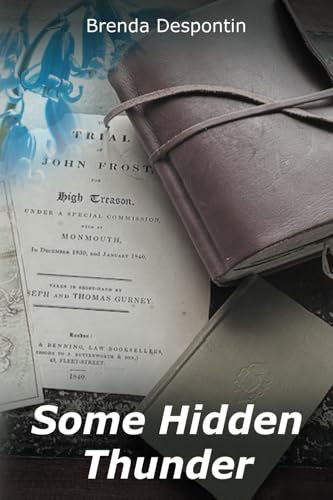Some Hidden Thunder
Bristol, 1876: Anne, the daughter of the dying Chartist John Frost (1784-1877), writes her father’s biography. His was an extraordinary life as well as a long one, beginning in Newport, Glamorgan, where he was born above his father’s pub. Frost received an education, though his Bristol school deliberately worked to erase his Welsh accent, became a respected draper and magistrate, yet was a passionate advocate of universal male suffrage, an associate of Francis Place, John Gale Jones, Henry Vincent, William Lovett and other Chartists. Today all but one of their demands (annual elections) have been met in the UK.
Thomas Carlyle described Chartism as ‘a bitter discontent grown fierce and mad,’ but one has to ask why. In 1839 Frost led a band of Chartists to Newport, with the aim of releasing a number of their comrades held in the Westport Hotel. A brief but bloody mêlée ensued, with soldiers within the hotel firing on Frost’s tired and sodden followers, killing an estimated twenty-two and wounding fifty others. Frost faced suborned witnesses and turncoats in his trial for treason, and was sentenced to death, later commuted to transportation.
The account Anne puts down of that voyage and life in the penal camps of Tasmania makes for truly horrifying reading. Frost published his experiences and when he obtained a conditional pardon in 1854 (freedom but initially continued banishment from the UK), embarked on a speaking tour of the United States.
Despontin draws on Frost’s own words in her empathetic and thoroughly convincing recreation of his life. One feels for Anne; her life given up to serving her father, she is acutely conscious of being eclipsed in his affections by her elder sister. Despontin’s is a timely book, a reminder that democracy was hard-won.










